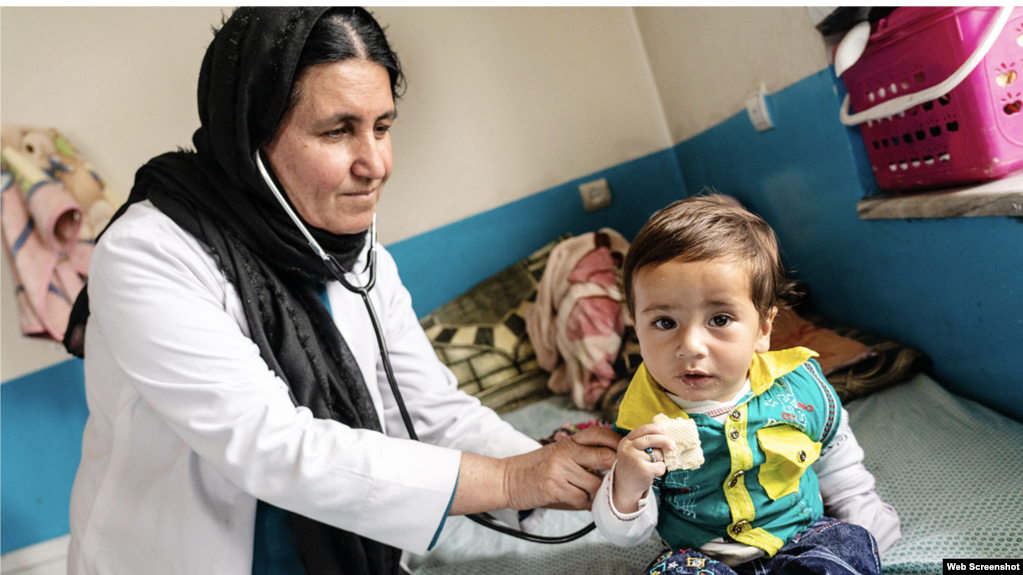In this year, more than 1.7 Afghan migrants were expelled from Iran, Pakistan, Turkey, and some other regional countries.
The expulsion of Afghan migrants from Pakistan was one of the significant events of 1402 (solar year).
After the deterioration of relations between Kabul and Islamabad, Pakistan announced that it would expel all illegal Afghan migrants from the country.
In this year, more than 1.7 Afghan migrants were expelled from Iran, Pakistan, Turkey, and some other regional countries.
According to statements from the Ministry of Refugees and Repatriations, this year, “1.2 million migrants returned to the country from Iran, 500,000 migrants from Pakistan, and 13,000 migrants were forcibly returned from Turkey.”
Abdul Rahman Rashid, the deputy minister of Refugees and Repatriations, said: “Since the beginning of the month of Hamal until now, which is the end of Hoot (solar calendar), 1.7 million migrants have returned.”
Since the start of Hamal (solar calendar) till now, 1.7 million migrants have returned to the country.
In 1402, the interim government of Pakistan, with its strict policies and unprecedented action, gave 1.7 million migrants, most of whom were Afghans, until the twelfth of Mizan (solar calendar) to leave the country.
Sarfaraz Bugti, the Interior Minister of the interim government of Pakistan, on the 12th of Mizan (solar calendar), said: “We have given a deadline to illegal migrants until the first of November to voluntarily return to their countries. If they do not leave by the given deadline, we will deport them. After the first of November, no one can enter Pakistan without a passport.
From October 10 to October 31st, Afghans are allowed to stay with an electronic ID, and after that, they can enter Pakistan with a passport and visa.”
Despite the demands of the Islamic Emirate and some international bodies to reconsider this decision of Pakistan, the country did not stop the forced expulsion of migrants.
John Kirby, the US National Security Council spokesman, on the 13th of Aqrab (solar calendar), said that Pakistan speaks of its policies towards refugees and asylum seekers and respecting them. It is clear that we want to see all countries do whatever they can to help refugees and asylum seekers, and this definitely includes our Pakistani friends concerning Afghans who want to flee this country.
An action that faced harsh reactions from officials of the Islamic Emirate and representatives of some countries and the United Nations.
The deputy prime minister for political affairs, Mawlawi Abdul Kabir, on the 23rd of Dalw (solar calendar), said: “Our request from all countries is not to force migrants to return forcibly in the winter season and other emergency situations, especially in conditions where they have not gathered their belongings and have not settled their accounts.”
Mawlawi Mohammad Yaqoob Mujahid, the Acting Minister of Defense, on the 13th of Mizan, said: “This decision is unjust and unfair. We ask Pakistan, its citizens, respected scholars, and political leaders to stop these authorities who are terrorizing and brutalizing Afghans like this.”
In addition to Pakistan, another neighbor of Afghanistan, Iran, also expelled more than 1.2 million Afghan migrants, having the highest expulsion rate of Afghan migrants. The mistreatment of these migrants was another issue they complained about.
“They beat us badly. They hit us with iron. They broke my legs,” said Sarwar, an Afghan migrant.
“It had been almost four months since I had gone there, and they treated us poorly until they expelled us,” said Sayed Hassan, another Afghan migrant.
According to the Ministry of Refugees and Repatriations, 7 million Afghan migrants live in neighboring countries, and nearly one million others live in European countries, with 3 million migrants in Pakistan, 3 million in Iran, one million in countries like Tajikistan, Uzbekistan, and some other neighboring countries, and one million more in European countries.
The ministry also reports that “nearly 7,000 Afghan migrants in Iran, nearly 6,000 Afghan migrants in Pakistan, and nearly 1,600 migrants in Turkey are imprisoned.”
An Afghan prisoner in Pakistan on the 20th of Hoot (solar month), said: “We and other Afghans in Pakistani prisons are facing very bad conditions here. Some Afghans have been in prison for six months, and some for ten months, but their fate is unclear.”
The continued detention and forced expulsion of migrants in neighboring countries and the region led to the issue of Afghan migrants being discussed at the margin and center of some global meetings.
Hossein Amir-Abdollahian, Iran’s foreign minister, on the 24th of Qaws (solar calendar), said: “As you know, for more than 45 years, Iran has been the host of the longest refugee situation and currently, after the political changes in Afghanistan in 2021, my country hosts the largest refugee population in the world.”
Amir Khan Muttaqi, the acting Foreign Minister of the Islamic Emirate, on the 5th of Jadi (solar calendar), said: “We raised the issues that migrants are facing. In some matters, they promised that they would solve the problems. In the political sector, our embassy and consulates are active.”
At the same time, Pakistani media outlets, with their latest reports quoting the Interior Ministry, have announced the second stage of the operation to expel Afghan migrants from the country until the 27th of Hamal of the year 1403 (solar calendar).
It remains to be seen what the fate of Afghan migrants will be in the coming Solar year.
 Afghanistan Peace Campaign
Afghanistan Peace Campaign